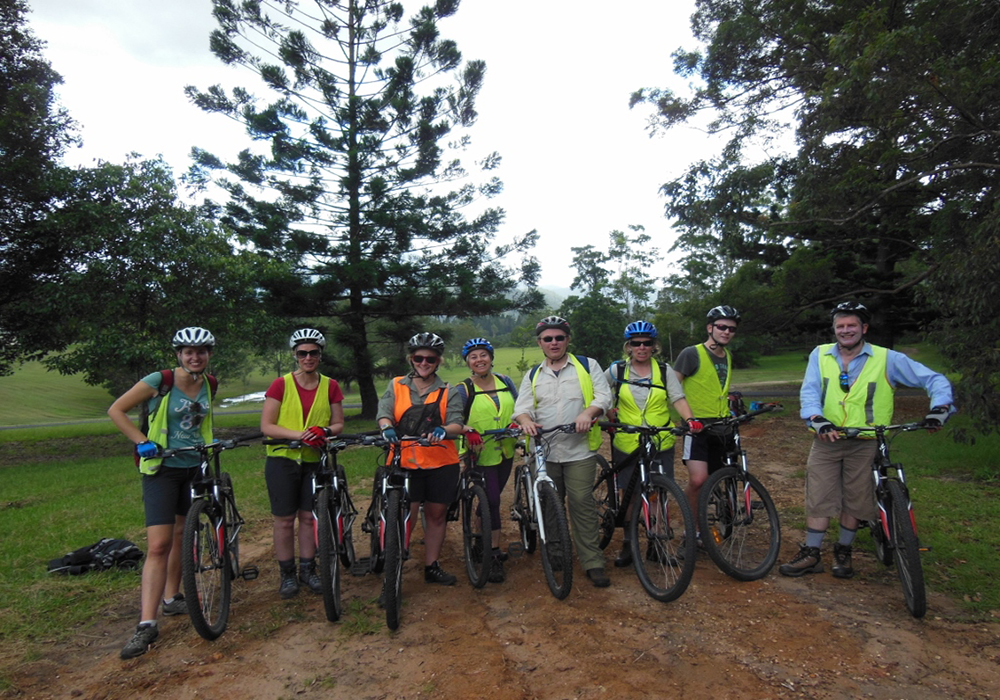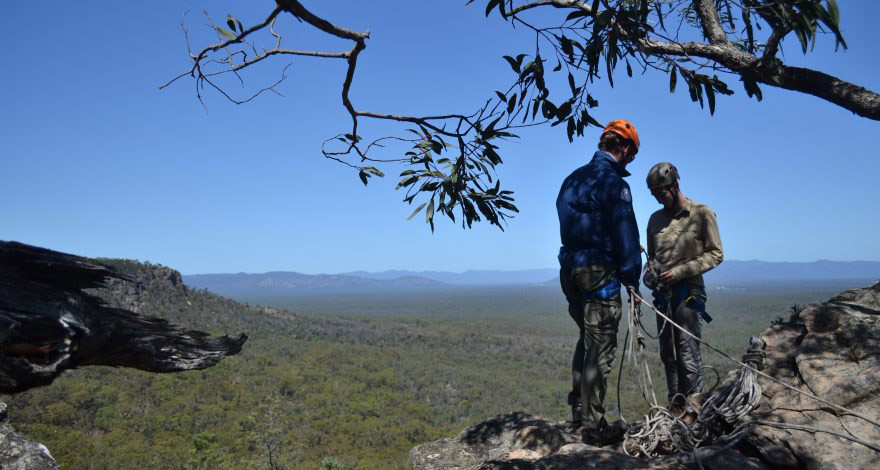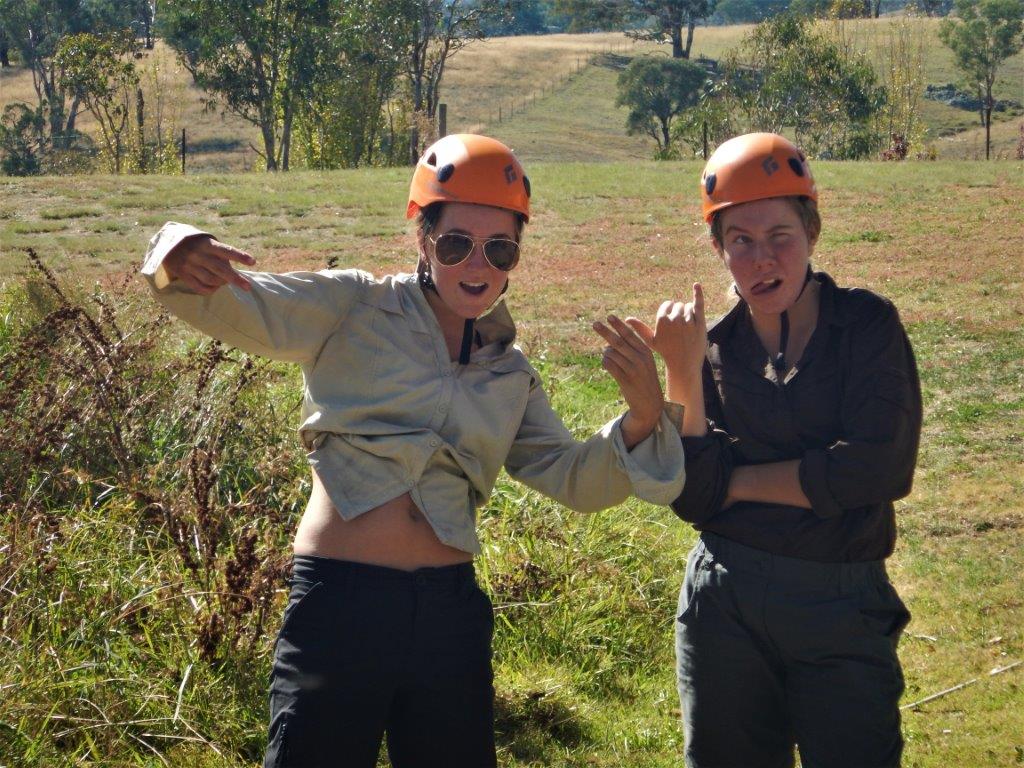AJ attended the 14-day Scenic Rim-to-River 2018 expedition courtesy of her employer Inspire Group. As a passionate learning design consultant, she works with companies and not-for-profits across Australia, creating learning experiences that challenge people’s perceptions on what they know and believe about themselves and the world around them. She also moonlights as a boxing instructor and studied outdoor recreation in a past life.
As someone who is quite open about having been in foster care between the ages of 13-17, I’ve often received comments such as: “You’ve turned out so well” or “you’ve done so well for yourself” or “but you’re so normal given your upbringing”.
While I’ve always understood the positive intent behind these comments, the younger version of me had a less than enthusiastic response to them. I wondered why people expected me to a ‘product’ of my background? Why wouldn’t and couldn’t I be like everyone else? Why should the expectations of me be less than others?
Now, older and (just slightly) wiser I reflect back on the many kids I lived with in care; while there are success stories, it’s fair to say that there are plenty who have struggled to break the cycle of violence, poverty or substance abuse that they happened to be born in to.
Psychologists have studied the ability for some people to quickly recover from difficulties and called it resilience. When faced with a tragedy, health concern, or a relationship, school or work problem, a person with good resilience has the ability to quickly bounce back with less stress than someone who is less resilient. That doesn’t mean they don’t feel the intensity of the problem they’ve just found a good way of dealing with it quicker than others.
As I embark on the journey to potentially become a foster carer myself, I began to wonder what makes some people more resilient than others? After all, biologically, we all have the same stress-response system in our brains.
While attending my Outward Bound Scenic Rim to River expedition, I witnessed a number of moments of both group and individual resilience, like:
singing at the top of their lungs during a hike that included a 300-meter elevation climb over 1km in 100% humidity on a 28-degree day
canoeing for two days despite having an allergic reaction to cold water
jokes and laughter while cooking dinner huddled under a group shelter in our makeshift roadside camp in a thunderstorm after the rain had put out our cooking fire after 9 hours mountain biking in 100% humidity and 28+ degree weather.
It’s only when we are faced with obstacles, perceived environmental threats or stress that resilience, or lack of it, emerges. When we face our fears or adversity, we begin to realise our own power and what we are capable of. Each of us at some point, had to rise to our individual and/or group’s physical and mental challenges, and be resilient, and all of us completed the program proud of what we had achieved.
But is resilience something I can teach the foster children I might care for? And is it something that I can help companies I work with instil in their workforce? Can resilience really be taught? Or is it just inherent?
Over a 40-year study of 698 participants, developmental psychologist Emmy Werner established that children exposed to risk factors such as instability at home, parental substance abuse or mental illness are more likely go on have to these issues themselves. However, one third of children who were from ‘high risk’ backgrounds developed into competent and confident adults despite their problematic upbringings.
She noted that those who grew into resilient adults were more likely to be autonomous, independent, and have the curiosity to seek out new experiences. They also had an ‘internal locus of control’. In other words, they believed that they (not their circumstances) affected their achievements. Rather than perceiving an event as traumatic, they perceived adversity as a challenge. They became more flexible and able to deal with an event, to learn and grow from it and move on.
So, we can make ourselves more or less resilient simply by how we think about things.
Werner also noted that other ‘protective factors’ included a strong bond with a non-parent, and involvement in community groups. The relationships we have with those who support us, mentor us and act as our sideline cheerleaders helps to provide guidance, feedback and purpose. They motivate us to keep going.
While we may not be able to recreate real resilience-based challenges in the workplace or classroom without it being ‘artificial’, we can teach the cognitive behaviours behind resilience. We can create an environment where we:
- treat problems and challenges as a learning opportunity
- set realistic goals to guide decision making
- create a sense of purpose
- celebrate successes, and
- value those who support and encourage us.
At Outward Bound, our instructors set the scene for this by setting clear expectations, allowing room for mistakes, and using them as teachable moments, and taking the time to acknowledge group and individual successes. After a few days, the group were self-leading and navigating and owned these behaviours themselves.
So, while we can’t teach someone to be resilient, we can set the groundwork which fosters resilience in others. It can be done in the in the outdoors, in a classroom, in the workplace or even a foster home. The rest, as they say, really is up to them!
Which reminds me of something the younger foster kid version me used to say: “You can use what happens to you as an excuse, or you can use it as a reason”. From now on, I’ll be sure to add, “Or, even better, you can use it as a learning opportunity.”
Set the ground works to build resilience. Find out more about Outward Bound Australia’s Public adventures by speaking with one of our team 1800 267 999.
If you would like to create an Outward Bound Australia blog please get in touch with us by emailing mailbox@outwardbound.org.au. We would love to hear from you!


